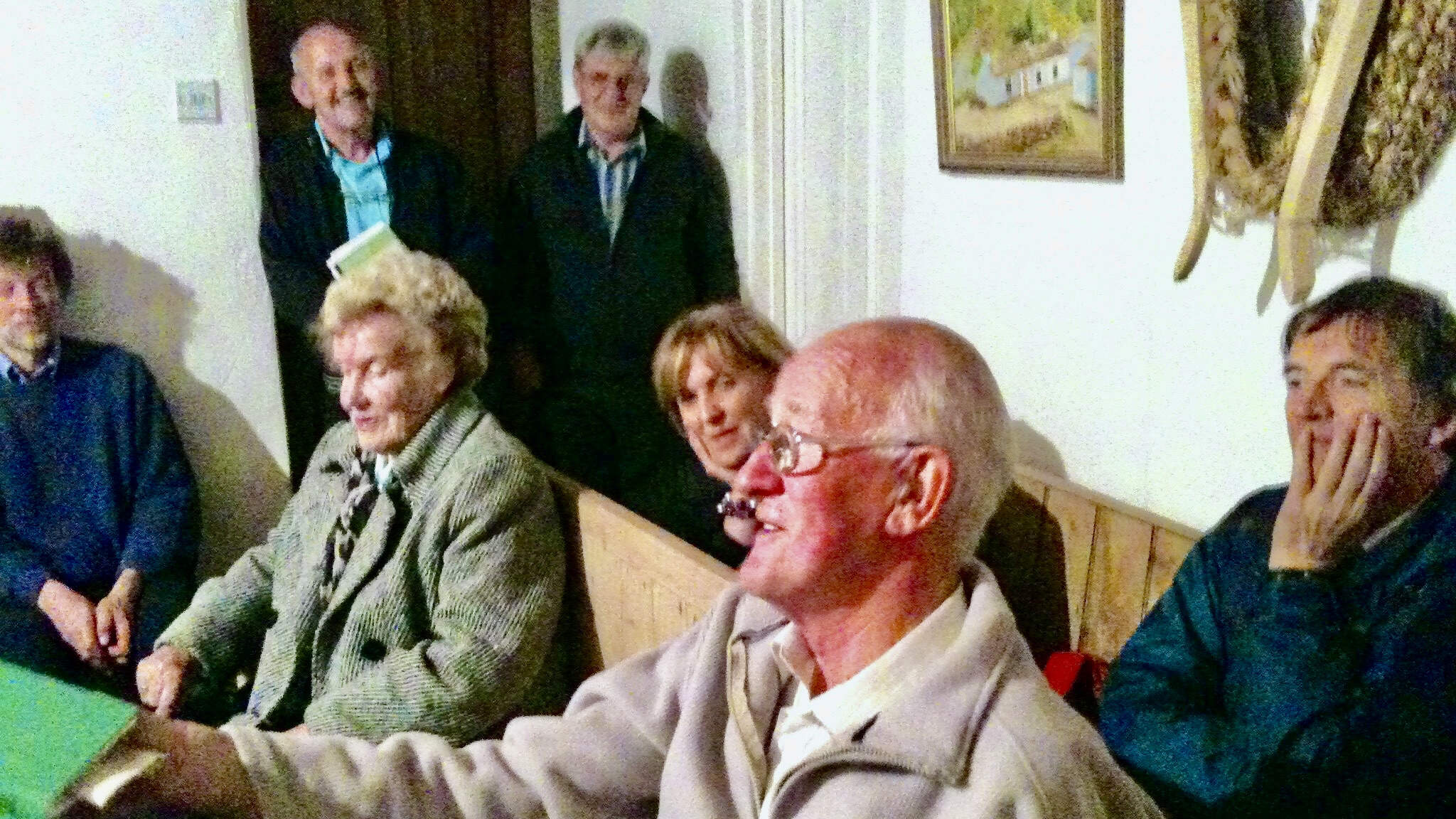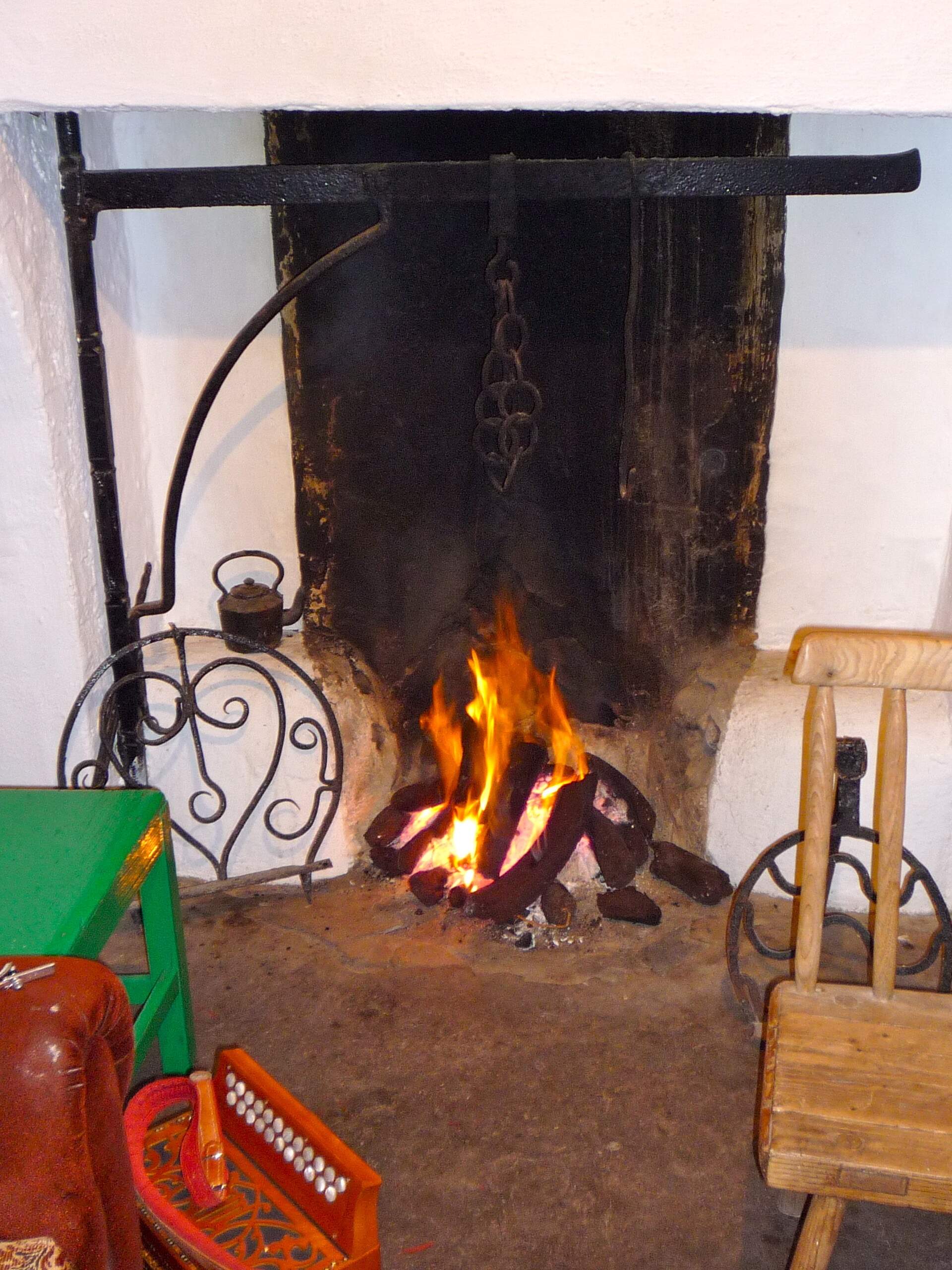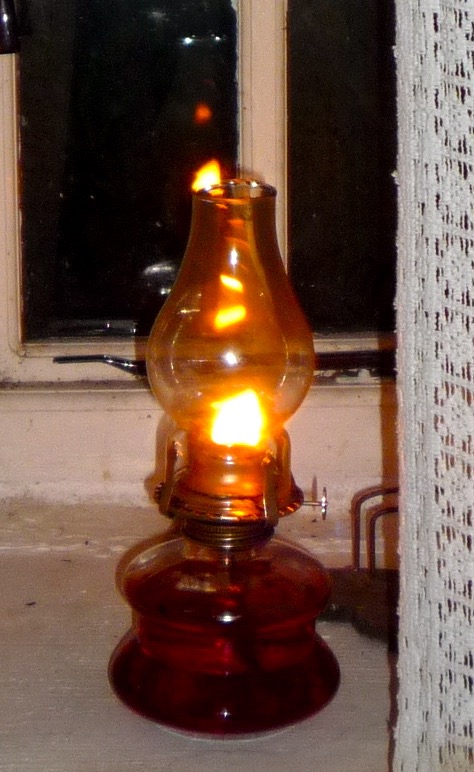Recording
Capturing for posterity
Recording the Rambling House
It's going to be another task for the M.C. on the night, but a worthwhile one. He/she will need to have the following in place beforehand: -
- Advance consent of all concerned to record them. After the Invitation poem, perhaps mention it in your opening remarks
- Get a good old-fashioned microphone that can be put at the top of the table and plugged into the laptop
- Have the laptop all set up and charged on the kitchen table
- Download audio software such as Audacity
- Consider doing a Udemy course on Audacity
To enable this feature, open your Zoom application. Click on your profile picture in the top-right corner, then select Settings. Select the Recording tab in the left-hand sidebar, then check the box that says "Record a separate audio file for each participant" after which you may close out the Settings window.
Recording a grandparent
Before you start
Lay out the sort of question you have in mind, perhaps with some other family members. Know the questions well and refer to them only occasionally - this is a conversation where you must maintain eye contact for trust and comprehension. Have some sort of linear flow. Start off easy, going back to the fundamentals. Bear in mind there may be well worthwhile tangents that occur – get a sense when it is simply veering off and steer back politely if so.
- By doing some groundwork beforehand, your results will be so much better!
- Be clear on the purpose of the interview – in this case, you are hoping to interview your relation on their lives, so start at the beginning!
- What do wish to achieve and how long will it take?
- Get specific information in advance – their age, where they grew up
- Decide on the medium to record on - Zoom or via a voice memos app on your smartphone
- Record in 20 minute chunks then have a break - it keeps things fresher
Start off nice and easy
The following childhood topics should get things going: -
- What’s your full name. Why did you get that name?
- When and where were you born?
- What’s your earliest childhood memory?
- Who were your parents? How did they meet? Where did they grow up?
- Who were your siblings and where do you come in the family?
- Where did you grow up? What was it like growing up there?
- What was your favourite/least favourite meal?
- What were your treats back then – what sort of sweets/chocolate?
- Do you remember your first day of school? Did you like school? What subjects did you study?
- Do you remember your household chores?
- Did you or your siblings have pet names/nicknames?
- What were your early summers like – what did you do?
- Did your family have some special holiday traditions?
- What games or sports did you play growing up?
- Who was your first boyfriend/girlfriend? Was it your first kiss?
- What are your abiding memories of your youth?
Other topics to cover
Other areas to cover as they grew up - their first love, their first dance, travelling to see cousins, historic or personal events that stuck in their mind, customs, ghost stories and lore in their area, what they wanted to be growing up and why, what were they really good at – a craft/hobby/sport. These can be done over a series of interviews as everyone tires and maybe more so with age so best to quit after no more than two twenty minute sessions and resume again when suits the grandparent.
Topics to let them think about in advance so they've prepared
For the follow up sessions, perhaps let them know these are the sort of questions you will be asking so that they can prepare in advance:
- Do they recall any of the local folklore where they grew up?
- Was there a famous event you were an eyewitness to?
- Are there any sporting events you remember either playing or watching?
- Do you remember any memorable local characters/heroes?
- Do you remember any Fair days, fit ups or other occasional events coming to town?
- Have any poems, recitations or jokes you wish to share with us?
- Any customs, superstitions or cures you recall from your area? Ghost stories?
- Describe the inside of your house growing up.
If from farming stock, ensure you ask the following:
- What were your daily chores?
- Did they change during the course of the year?
- Describe the differences in tasks and why they were done then
- What big changes have happened in agriculture since your youth?
- Were there any customs you remember e.g. around May Day etc
- Was there a certain animal you always remember?
- How about pets – and if so, were they yours?
Always remember!
- Plan everything well ahead
- Agree on the questions
- Check with your parents
- Record in 20-minute sections
- Make it enjoyable
- See our Rules of Thumb
- Get permission to record them!
Other good rules of thumb
Permission
- Inform interviewee/s of the recording in advance with plenty of notice.
- Ensure at the start of every single recording that you ask everyone being recorded 'are you okay with this being recorded?' and ensure they all agree. Get into the habit of doing this - their express consent is essential.
- Assume that everything being recorded is fit for a stranger to hear and enjoy
- If parts are for family ears only, be clear in your editing to keep it separate and note it on the file
- If in doubt, check with the interviewee or a family member!
- Respect and trust are key to get the best out of them, but don’t forget to have some fun as well!
· This is critical. Get the acoustics right. No echoes or rattles!
· Do a trial run – how is the outside traffic? Is there electronic equipment making noise?
· Outside recordings need a windsock or else you’ll pick up the wind etc
· Best to have the interview at a table so you can lay out your equipment etc
· All devices to be in Airplane Mode and on silent throughout - critical to avoid feedback.
· Have a sign on the door to say a recording is taking place.
· Ask if they are expecting a visit or phone call and factor it in.
· Agreed with other householder/s to leave you in peace during a certain time.
· Have plenty of water at the ready - this is important to avoid the dreaded mouth 'clacking' sound!
· Have plenty of pens and paper in front of the interviewee and indeed for you.
· Ensure they don’t have coins/keys jingling or drum their fingers, tap anything that the mike will pick up.
· Twenty minutes’ recording at a go is plenty; then allow for a break before continuing.
Questions
· Have those well researched questions/themes at the ready.
· Avoid asking a list of formal questions - check with your parents to get the right tone!
· Perhaps you might wish to give the questions in advance, especially if asking them to recall events from years ago.
· The interviewee may work better if being interviewed in conjunction with someone else? If so, ensure any other person has been asked in recording mode are they okay with being recorded by you - this is their express consent.
· Get into the nitty gritty if they are doing well. Let them paint that picture as vividly as possible. It may well be that crossing the border to see a cousin is in itself an epic adventure!
Listening
· Avoid interruption if possible, allow the flow.
· Take the odd note as an aide memoire (explain in advance you may do so)
· Revisit those issues from those notes.
· Do not feed answers if you can help it.
Recording equipment
· Keep it simple and calm – use a smartphone in Airplane mode
Consider getting a mini-tripod to hold the smartphone.
· Have the equipment close (but not too close!) to the interviewee.
· Do a dummy run or two and listen back carefully.
· Practice with friends before this too.
· Backup is vital – do it early and twice if possible.
· Ensure your phone is fully charged or if on Zoom that the laptop is plugged in.
· Use free software like Audacity to edit the material.
Transcript
· Best to do it while fresh in your head – try Otter.ai, it is free and reliable.
· A written summary of the recording is advised as is meta tagging key words.
Do out a list of items covered and at what point in the recording it starts.
· Look into OHMS and other innovations on transcribing.
Preserving the Recording
· Ensure the recording is kept somewhere safe, dry and secure in hard copy.
. Ensure the recording is backed up in a separate safe location, digitally if needs be.
· Ensure you have clearly divided what is meant for the family only and what the public may hear in time.
· Ensure that this division of the content is done in conjunction with other family members.
Place the transcript with the original recording, meta tag where certain material is at and what point.
. Ensure you retain the interviewee's consent to be recorded statement at the start of all interviews.
· If deceased, allow a suitable amount of time to pass before featuring audio on a future rambling house evening.
· Most importantly, well done - we need more to start preserving the voices of the past for posterity!




